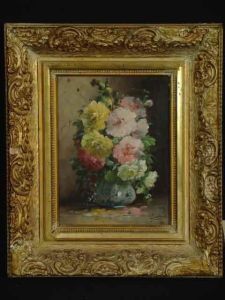Th. Dubois Paintings
Théodore Dubois was a French composer, organist, and music teacher who played a significant role in the French classical music scene in the late 19th and early 20th centuries. Born on August 24, 1837, in Rosnay in Marne, Dubois entered the Paris Conservatoire at a young age. He studied under influential figures such as François Benoist and Ambroise Thomas. Dubois was a talented student, winning the prestigious Prix de Rome in 1861, which allowed him to study in Rome for a period.
Dubois's career was multifaceted; he was an accomplished organist and held the position of organist at the Church of the Madeleine in Paris for many years. He succeeded César Franck as the organ professor at the Paris Conservatoire, and later became the conservatoire's director, a position he held from 1896 to 1905. During his tenure, he was a conservative influence, resisting the innovations of composers such as Claude Debussy and Maurice Ravel.
As a composer, Dubois wrote a variety of works, including operas, symphonies, chamber music, sacred music, and pieces for piano and organ. His music is characterized by its clear structure, melodic grace, and adherence to traditional harmony, reflecting the academic standards of his time. Some of his notable works include the opera 'Le Paradis perdu,' his 'Toccata in G' for organ, and the 'Seven Last Words of Christ' for choir and orchestra.
Dubois faced some criticism for his conservative tendencies, both as a composer and administrator, and his music fell out of favor after his death compared to that of his more innovative contemporaries. Nevertheless, he was an important figure in maintaining the standards of the French musical tradition during a period of change. Théodore Dubois died on June 11, 1924, in Paris. His legacy lives on primarily through his contributions to organ music and his influence as an educator.
